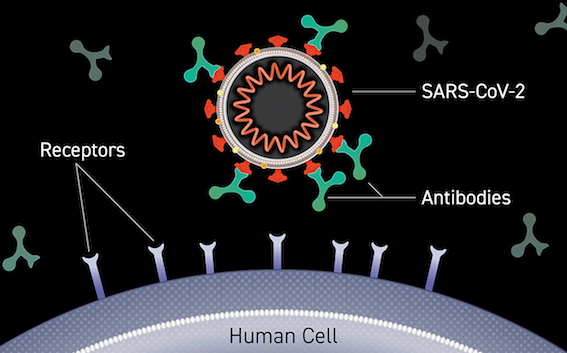NIH enrolling ph III trials of monoclonal Abs to prevent COVID-19
August 12, 2020 | Wednesday | News
The trials are enrolling adults who are at risk of infection due to close contact at work or home to persons with SARS-CoV-2 infection
Image credit- NIH
Two Phase 3, randomized, placebo-controlled, double-blind clinical trials testing whether experimental monoclonal antibodies (mAbs) can prevent infection by SARS-CoV-2 coronavirus are now enrolling healthy adults at clinical trial sites in the United States.
Many of the trial sites and study investigators are part of the COVID-19 Prevention Network(link is external) (CoVPN), recently established by the National Institute of Allergy and Infectious Diseases (NIAID), one of the National Institutes of Health. SARS-CoV-2 is the virus that causes coronavirus disease 2019 (COVID-19).
The trials are enrolling adults who are at risk of infection due to close contact at work or home to persons with SARS-CoV-2 infection.
One trial is being conducted jointly by NIAID and trial sponsor Regeneron Pharmaceuticals of Tarrytown, New York. It will evaluate Regeneron’s investigational double mAb combination, REGN-COV-2, which is designed to bind to two points on the SARS-CoV-2 spike protein and prevent it from entering healthy cells. The trial will enroll approximately 2,000 asymptomatic adults who are household contacts of persons with SARS-CoV-2 infection.
A second trial, sponsored by Eli Lilly and Company of Indianapolis, Indiana, and implemented in collaboration with NIAID, will evaluate LY-CoV555, a mAb isolated from a recovered COVID-19 patient by scientists at AbCellera (Vancouver, British Columbia, Canada) and the NIAID Vaccine Research Center, and developed by Eli Lilly and Company. Up to 2,400 participants will be randomized to receive intravenous infusion of either LY-CoV555 or placebo.









